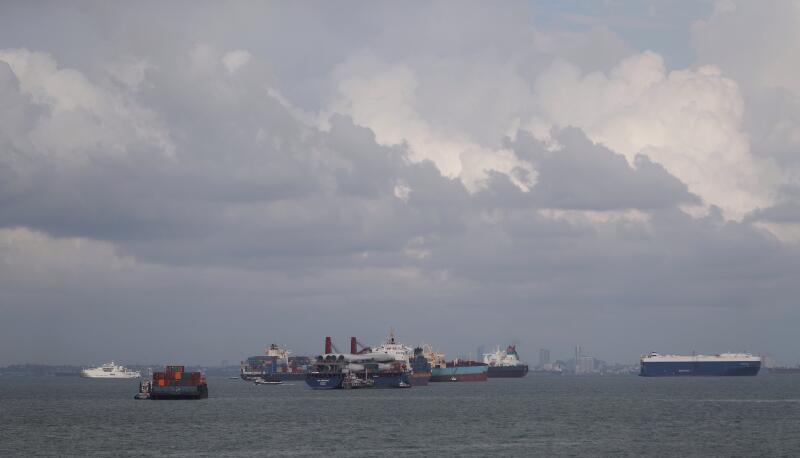Global platform for exchange of ideas to be set up for shipping industry to reduce carbon footprint
Sign up now: Get ST's newsletters delivered to your inbox

The project was launched by the International Maritime Organisation and Singapore to help the sector tackle global warming.
ST PHOTO: GAVIN FOO
Follow topic:
SINGAPORE - Leveraging on its role as a maritime centre, Singapore is working with the International Maritime Organisation (IMO) - the United Nation's agency for shipping - to bring countries, companies and academics together in a collaborative effort to reduce carbon emissions in the industry.
The new project, called NextGEN, was launched on Thursday (Sept 17) by the IMO and Singapore to help the sector tackle global warming.
Still in its preliminary stages, it aims to develop a common platform for the 174 IMO member states over the next two or three years, so that the disparate initiatives of individual countries can be shared and improved upon.
Said chief executive of the Maritime and Port Authority of Singapore Quah Ley Hoon: "We have less than a decade for us to get our act together, but there are some good initiatives around. We need these to snowball.
"It should not be seen as individual initiatives competing with each other. We can build on each other's experience to make it a better success," added Ms Quah, one of the panellists at the Future of Shipping webinar, where the initiative was presented.
The webinar was jointly organised by the IMO and Singapore, and was attended by interested parties from 63 countries.
The IMO wants to reduce annual greenhouse gas emissions from shipping by at least half by 2050, from 2008 levels.
Thursday's webinar theme, decarbonisation, comes as travel and trade around the world is being rethought in the light of the coronavirus pandemic, and as volumes fall to unprecedented levels.
It is the third in a series organised by the MPA. The next, to be held on Oct 8, will focus on digitalisation.
Minister of Transport Ong Ye Kung, in his opening remarks, pointed out that Singapore can be a useful reference for the rest of the global community.
He said Singapore has invested in sustainable infrastructure, citing the Tuas Port which, when completed in the 2040s, will be the world's largest fully automated terminal.
The port will do away with conventional diesel-operated movers in transporting containers within the port, and will handle twice the number of 20-foot equivalent units with half the carbon emissions intensity, compared to 2005, he said.
It will have a fleet of full-electric automated guided vehicles instead, and will also give vessels that use cleaner fuels concessions in port dues.
"Climate change is a problem we cannot solve alone, especially when Singapore accounts for only about 0.1 per cent of global carbon emissions... But what we do here can be a useful reference for the rest of the international community, and that makes us a potential catalyst for change," Mr Ong said.
He then returned to the theme of collaboration, saying that "we all have capabilities, expertise and resources to contribute to (the fight against climate change)".
"Singapore will do our part, and we look forward to the maritime community coming together."
IMO secretary-general Kitack Lim from South Korea used the opportunity to call for research into zero carbon marine fuels to be sped up, even as he assured developing countries that they will not be left behind.
He said: "We also want to ensure that no country is left behind in the transition to carbon neutral shipping... I am determined to progress on our major policy issue, despite the challenges posed by Covid-19."

